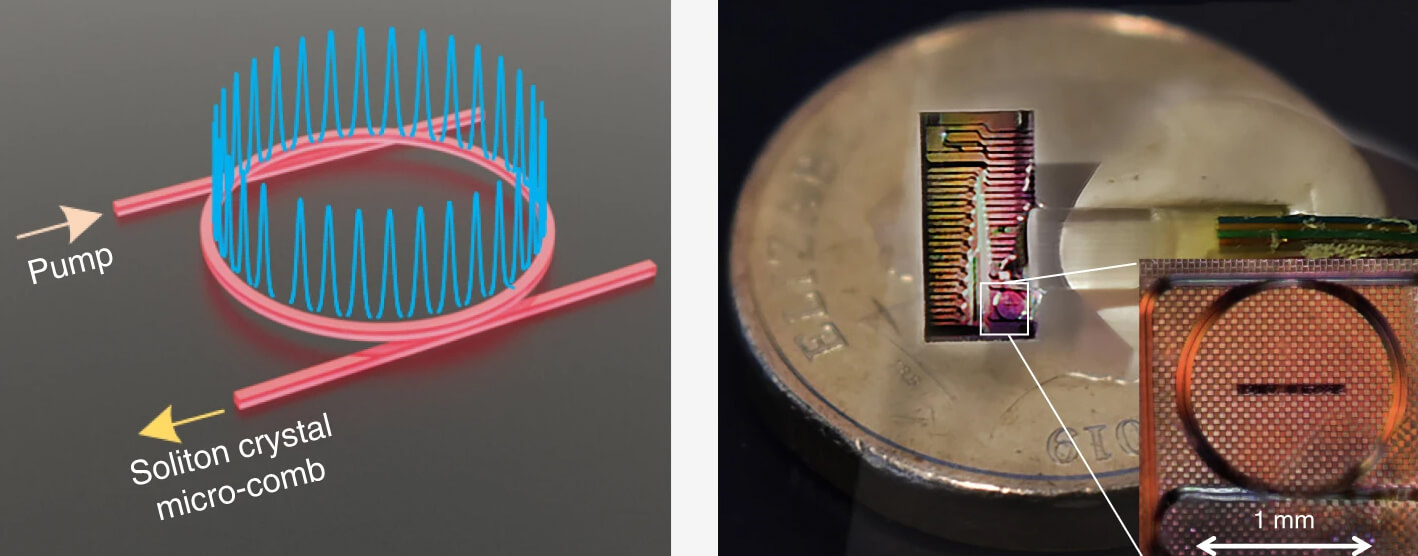What just happened? Researchers from the universities of Monash, Swinburne and RMIT in Australia have successfully developed and tested an Internet connection based on a single optical chip that achieved a blistering fast transfer speed of 44.2 terabits per second (Tbps).
According to Science Daily, that's fast enough to download 1,000 high definition movies "in a split second" and is a new world record for a single optical fiber with a single chip source.
Tests of this type are typically limited to laboratory environments but in this instance, the researchers used 76.6km of "dark" optical fiber between Monash University's Clayton Campus and RMIT's Melbourne City Campus. They then installed a piece of equipment called a micro-comb that replaces 80 lasers with a single unit capable of mimicking hundreds of high-quality infrared lasers. Each "laser" is able to be used as an individual communications channel, the publication notes.

Dr. Bill Corcoran, co-lead author on the study and lecturer in electrical and computer systems engineering at Monash University, said the research demonstrates the ability of fibers already in the ground to serve as the backbone of communications networks now and in the future. "We've developed something that is scalable to meet future needs," Corcoran added.
Professor David Moss, director of the optical sciences center at Swinburne University, said that in the 10 years since he co-invented micro-comb chips, they have become an enormously important field of research, adding that "micro-combs offer enormous promise for us to meet the world's insatiable demand for bandwidth."
Full details of the research can be found in the latest issue of Nature Communications.
Masthead credit: alexskopje
